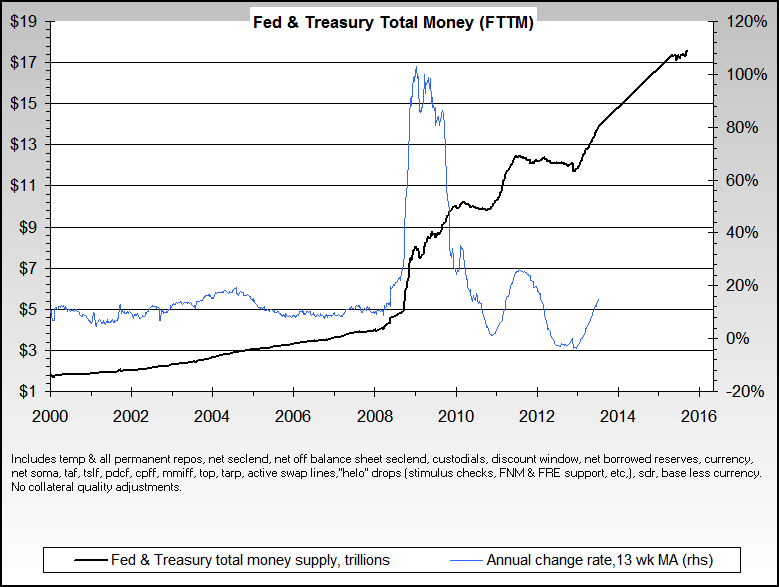Thursday, March 04, 2010 2:23:32 PM
Panel Raises Concerns Over ‘Government Guarantee’ for Citigroup
By ERIC DASH
Published: March 4, 2010
http://www.nytimes.com/2010/03/05/business/05tarp.html
Members of a government committee overseeing the bank bailout program raised concerns Thursday about whether the repeated bailouts of Citigroup allowed it to enjoy special advantages by implying that the bank was too big to fail.
In their opening statements, several members of the Congressional Oversight Panel questioned whether the substantial support that Citigroup received at the height of the financial crisis could pose future risks on the financial system and the bank itself.
“I remain concerned that Citigroup remains vulnerable,” Damon A. Silvers, an assistant legal counsel to the AFL-CIO and a member of the committee, said in his opening statement.
Elizabeth Warren, a head of the Congressional Oversight Panel who has strongly advocated the breakup of too-big-to-fail banks, expressed concern in her opening statements that Citigroup received an undeservedly favorable credit rating that might encourage it to take undue risks. She also noted that the bank had a history of being bailed out.
“The sheer magnitude of Citigroup’s operations, and the company’s history of receiving extra government support has led this panel to this conclusion,” Ms. Warren said. “Citigroup enjoys an implicit government guarantee.”
Other members expressed concern that Citigroup had become a ward of the federal government, which owns 27 percent of the bank.
“My concern is that Citigroup is currying favor with its largest shareholder over its other shareholders,” Paul Atkins, a former Securities and Exchange commissioner, said, citing the example of Citigroup employees offering customers copies of one of President Obama’s books.
The panelists’ comments came before testimony by Vikram S. Pandit, Citigroup’s chief executive, who told the oversight panel that the bank owed a “large debt of gratitude” to American taxpayers for stabilizing it with more than $45 billion in aid from the Troubled Asset Relief Program, or TARP.
“This investment built a bridge over the crisis to a sound footing on the other side, and it came from the American people,” Mr. Pandit says. “Citi owes a large debt of gratitude to American taxpayers.”
The oversight panel, led by Ms. Warren, a Harvard Law School professor, has held more than a dozen hearings since it was formed to monitor the use of the federal bailout funds in late 2008. But the committee, split largely along partisan lines, has also delved into a broad range of issues, from mortgage modification woes to government guarantees of bank debt.
Despite their political differences, Ms. Warren and the other four panelists appear have had a strong desire to examine problems that arise when institutions are deemed too big to fail. At a hearing last month, they turned the spotlight on GMAC, the troubled car and housing lender which received three helpings of government capital. Taxpayers’ $17.2 billion investment now gives the government a majority ownership stake in that company.
Thursday’s hearing was expected to provide members of the panel a chance to press their case for financial reform. In particular, Ms. Warren has been perhaps the leading proponent of a standalone consumer financial protection agency.
Senate Banking Committee members are still hammering out the final details of a financial regulatory reform bill, and it unclear what form, if any, the consumer protection agency will take. Senator Christopher J. Dodd of Connecticut, the Democratic chairman, recently expressed support for placing the agency within the Federal Reserve. Other Democrats have advocated that it be in the Treasury Department, while some Republicans believe the agency should be dropped from the reform package altogether.
Most of the hearing’s focus, however, is expected to be on Citigroup, which perhaps reflects its distinction as the deepest and most troubled of the American banks.
Only in December did the bank begin the delicate process of untangling itself from the government. It repaid $20 billion of the $45 billion of bailout funds and shed a federal insurance policy that at its peak covered losses on some $301 billion of illiquid loans and securities. Taxpayers, however, still own 27 percent of Citigroup.
In his testimony, Mr. Pandit weighed in on the current policy debate with a series of sound bites that may be more remarkable for what is left unsaid.
For example, Mr. Pandit, stressed “banks should operate as banks, focused completely on serving their clients” but he stopped short of formally endorsing the Volcker Rule, which strictly bars banks from proprietary trading or sponsoring private equity units or hedge funds. He also advocates strengthening consumer protection at the federal regulatory level, but stopped well short of endorsing a new agency.
Mr. Pandit said that Citigroup was in a “much healthier position” and reiterates the progress he has made on his turnaround plans.
Under pressure from regulators, Mr. Pandit has raised billions of dollars of fresh capital, overhauled the bank’s risk management practices and board, and reduced its balance sheet by more than $500 billion by selling off assets and businesses. He expects Citigroup to “perform as well as possible” through the downturn but gave no indication of when the bank will return to profitability.
“We are confident in the business strategy,” Mr. Pandit concluded in his prepared remarks. “Everything we have been doing is to ensure that Citi never again needs the assistance of the American taxpayer.”
Join the InvestorsHub Community
Register for free to join our community of investors and share your ideas. You will also get access to streaming quotes, interactive charts, trades, portfolio, live options flow and more tools.










